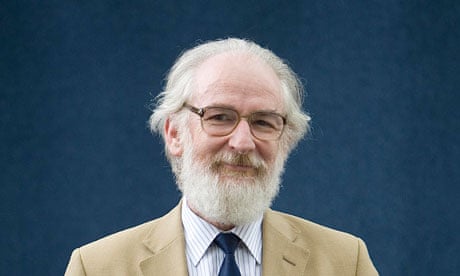David Crystal works from his home in
Holyhead, North Wales, as a writer, editor, lecturer, and broadcaster. Born in
Lisburn, Northern Ireland in 1941, he spent his early years in Holyhead. His
family moved to Liverpool in 1951, and he received his secondary schooling at
St Mary’s College. He read English at University College London (1959-62),
specialized in English language studies, did some research there at the Survey
of English Usage under Randolph Quirk (1962-3), then joined academic life as a
lecturer in linguistics, first at Bangor (1963-5), then at Reading (1965-84).
He published the first of his 100 or so books in 1964 and became known chiefly
for his research work in English language studies, in such fields as intonation
and stylistics, and in the application of linguistics to religious, educational
and clinical contexts, notably in the development of a range of linguistic
profiling techniques for diagnostic and therapeutic purposes. He held a chair
at the University of Reading for 10 years and is now an Honorary Professor of
Linguistics at the University of Bangor.
David Crystal said the use of language and
how it would change would not affect new technologies, which is very true. Every written language on the Internet and
SMS style has a standard German language of communication, the language spoken
by people is not a Swiss (Islamic) variation of the Proto-German language. So
new ways of communicating helped keep the (uncertified) language alive in a
way. So new technologies can have a big impact on language, perhaps not on
standard languages but on the use of endangered languages. Language is an
alive entity and it makes sense to evolve and to be shaped by the elements
around. I understand those linguists worried about the impact of the
abbreviations with short text messages, forex. They are another language. If a brain is like a muscle one trains, and
if one uses daily the 'short text messages language', it may get to
difficulties in writing grammatically and literary correctly. Twitter is
different - one has to keep its sentences short. I think, in the end, it comes
to each of us and the way each of us treasures the written words and language,
in general.
David Crystal said about the benefits that
texting is giving to the English language. He also talks about the myth of
texting that kids use the abbreviation in text and because of that they don’t
know how to spell correct words. David here says that kids do abbreviation
because for them it is cool to do it. Secondly, he says that if they are
shortening the word in the first place they know the full word. he mentions in
his book Internet Linguistics, the Internet is now an integral part of
contemporary life, and linguists are increasingly studying its influence on the
language. In this student-friendly guidebook, leading language rights professor
David Crystal goes beyond his landmark bestseller language and the Internet and
introduces the field as a new field: Internet linguistics



No comments:
Post a Comment
if you have any knowledge. please let me know